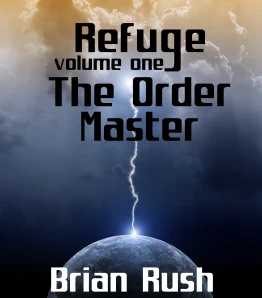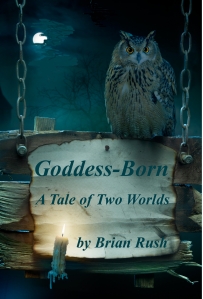 Spirituality is legitimately concerned with two things. One of them is consciousness, the subject of last week’s post. The other is the universe, the subject of this week’s post. (Note that there are many things that religions often concern themselves with, such as morality, that are not either of these. I’m not suggesting that religious people, or spiritual people, shouldn’t be concerned with morality, which is a universal human concern, but I do suggest that it isn’t a spiritual topic, and not something on which a religious organization can speak with legitimate authority. More on this in a bit.)
Spirituality is legitimately concerned with two things. One of them is consciousness, the subject of last week’s post. The other is the universe, the subject of this week’s post. (Note that there are many things that religions often concern themselves with, such as morality, that are not either of these. I’m not suggesting that religious people, or spiritual people, shouldn’t be concerned with morality, which is a universal human concern, but I do suggest that it isn’t a spiritual topic, and not something on which a religious organization can speak with legitimate authority. More on this in a bit.)
“The universe” is shorthand for “everything,” and so in a way all topics are spiritual topics. But that which is everything is nothing in particular, and when you get down to the pieces and parts, to items which are included in the All but no more so than anything else, another approach rather than spirituality becomes appropriate, sometimes science, sometimes moral judgment, sometimes philosophy, and sometimes art, depending on the nature of the question. God is a metaphor for the universe (which is itself a metaphor, both of them representing the unknowable), and so when I say the proper subjects of spirituality are consciousness and the universe, I mean the same as saying that the proper subjects of spirituality are the soul and God, just a bit less poetically and a bit closer to being a literal statement.
Now, some might suppose that the universe is properly in the domain of science rather than spirituality, but it’s not. That may need some clarification, because everything that is in the domain of science is a part of the universe, a subset or subroutine of the cosmos. The proper domain of science encompasses all questions of fact regarding observable phenomena. Consciousness is outside the domain of science because it isn’t observable and therefore scientific method, which depends on observation, can’t be used to address it. The same is true of the universe. It’s not true, however, of any of the parts and subroutines of the universe which we can observe, and so all questions of fact about those parts and subroutines are scientific questions. But the universe as a whole can’t be observed.
The Ineffable Cosmos
Why can’t the universe be observed? Because of the nature of observation, which always involves an interaction between two entities. One of these is the observer, and the other is the phenomenon under observation. The two must be separate for observation to take place, and the observer must occupy a vantage point at a remove from the phenomenon and observes it from that vantage point.
But when we are talking about the universe as a whole, any possible observer is a part of the universe and so is any vantage point from which it might theoretically be observed, and so this means that, at best, an observer is observing not the universe as a whole but the universe minus himself and minus his vantage point. The very act of observing the universe (or thinking about it for that matter) distorts the reality and prevents getting a clear picture, in a manner analogous to the observer effect in quantum mechanics.
One might ask in response, why not make observations of the parts and put this piecemeal understanding together to make a coherent picture of the whole? But there are several reasons why this won’t work. To begin with, when we speak of the universe as a whole we must extend that description through time as well as space. A picture of the universe as it is at any moment is only a slice of the whole, which encompasses the past and future as well as the present. Much of the future is unpredictable due to the indeterminate nature of many natural processes, even if we had complete knowledge, which of course we don’t. Secondly, there are problems with trying to make a composite picture out of parts, in the form of emergent properties that can’t be predicted from the components. A good example is the structure of a tree, which cannot be predicted from an understanding of the organic molecules from which it is composed. The final reason is that even if we could create a composite picture from an understanding of the parts, there would be no way to test this composite picture for accuracy. When we are dealing with a part of the whole, it’s always possible to make observations of the larger entity in order to confirm whether the picture derived from its components is accurate, but with the universe we can’t do that. Any such picture is therefore unfalsifiable and scientifically meaningless.
How Can We Approach It, Then?
The problem with observation when it comes to the universe is that it is a detached method. The goal is to render the self unimportant, so that one’s observations can be confirmed by another, equally detached observer. In contrast to this detached approach which is appropriate to science, both art and moral judgment offer immersive approaches in which a person plunges in rather than detaching. Immersive approaches to knowledge don’t give us propositions of fact that may be tested, but other kinds of statements (“ought” statements from moral judgment, meaning statements from art) that can’t be objectively confirmed (being meaningless in this sense), but can be personally confirmed or denied, each person individually.
Spirituality is also an immersive approach. To understand the universe, one does not detach and observe it. Rather, the goal is to merge with the universe and become one with it, at which point one discovers that this unity had always existed and had merely been forgotten in the grip of the illusion of individual consciousness.
As with other fruits of immersive knowledge methods, this is not a proposition that can be falsified. It does not advance scientific understanding or our objective map of the world. It does, however, present a guideline for personal discovery, and may be confirmed individually and subjectively, each person for himself or herself. Also, it’s important to emphasize that without making that journey, words describing these insights convey no understanding. The journey is the destination in this case, and what is learned on it cannot be conveyed to another in words.
Having made this discovery, we find that we have not so much discovered something new, as changed the meaning of everything else that we thought we knew. It’s the same world afterward, but transformed nonetheless. The same music plays, but at a higher octave. The same light shines, but it’s orders of magnitude brighter. And from that moment on, the challenge is to remember these insights. It’s like clouds before the sun, getting thinner all the time, with the moments of illumination coming more and more frequently.
All religion, to the extent it’s legitimate at all, points in that direction. Everything else about them is a deception, a diversion, or a guardian at the gate.
Copyright: rolffimages / 123RF Stock Photo






